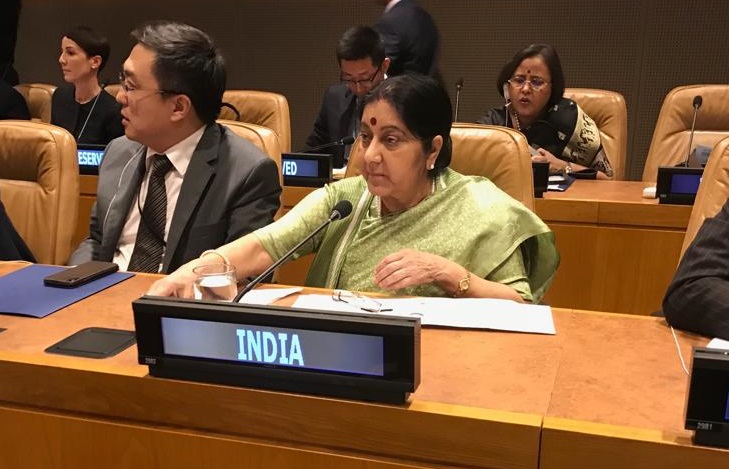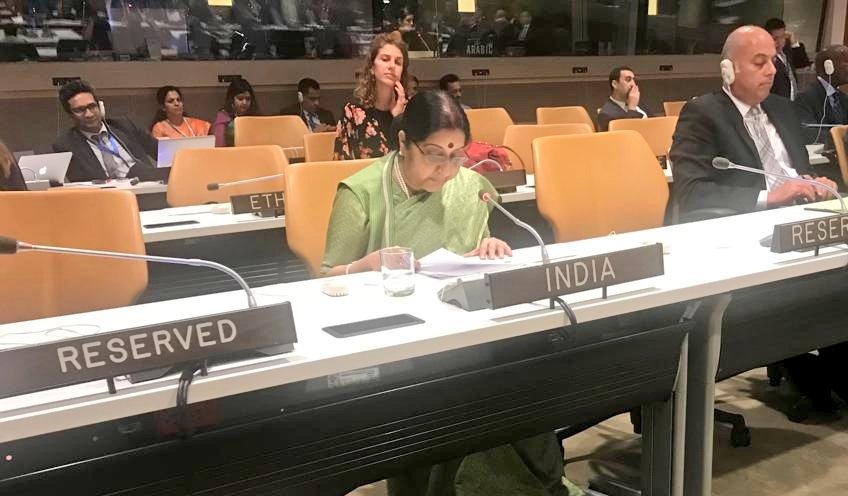India willing to take lead in combating climate change, says Sushma Swaraj
India is willing to take the lead in combating climate change as it poses significant developmental challenges, especially for developing countries, External Affairs Minister Sushma Swaraj has told a high-level UN meeting on the issue.

New York: India is willing to take the lead in combating climate change as it poses significant developmental challenges, especially for developing countries, External Affairs Minister Sushma Swaraj has told a high-level UN meeting on the issue.
India is the sixth largest producer of renewable energy, and fifth largest producer of solar energy in the world, Swaraj said at the high level meeting on climate change convened by UN Secretary General Antonio Guterres during the 73rd session of the UN General Assembly on Wednesday.
For its part to fight climate change, it has set a target of generating 175 Giga Watts of solar and wind energy by 2022, Swaraj said.
Also Read: UNGA debut for New Zealand's first baby
India has installed over 300 million LED bulbs saving USD 2 billion and 4 GW of electricity. She also cited the example of the Kochi airport in Kerala which is the first solar-powered airport in the world.
"India is willing to take lead in climate action. Our commitment to combat climate change is rooted in our ethos, which considers Earth as Mother," Swaraj said.
She told the UN meeting that India will reduce the emission intensity of its GDP by 25 per cent over 2005 levels by 2020, and further by 33-35 per cent by 2030.

"India is a firm believer in multilateralism," she said, adding that the International Solar Alliance (ISA) launched with France, has been already signed by 68 countries. The alliance aims to mobilise technology and finances to lower unit costs.
Swaraj said India look forward to Guterres's visit next week to the country at the first meeting of the General Assembly of the ISA.
Also Read: Kashmir is Pak's 'one trick pony' act- India at UN
"Climate change poses significant developmental challenges, especially for developing countries. However, their capacity to translate commitments into tangible results is constrained by lack of predictable, sustained and adequate finances and technologies," she said, adding that the world needs a roadmap for finance and technology, to achieve the goals set out in the Convention and its Paris Agreement.
"Ancient Indian tradition conceives our cosmos as comprising of five basic elements panchbhutas. These are space, air, water, earth and fire. There is harmony among them. Trouble begins when their equilibrium is disturbed. From atmosphere to oceans; our actions are leading us into uncharted territories with possibly disastrous consequences," she said. (PTI)
 Dynamite News
Dynamite News